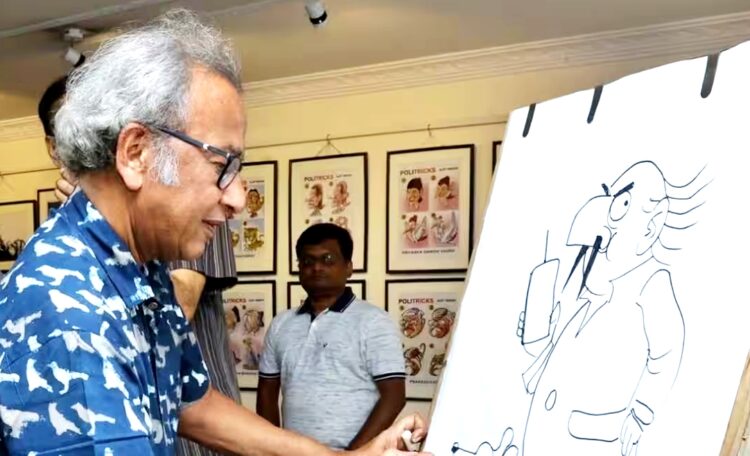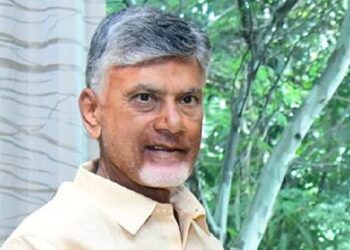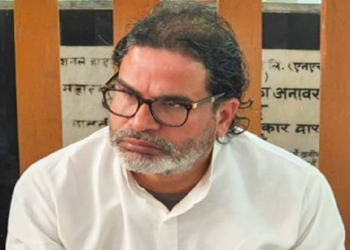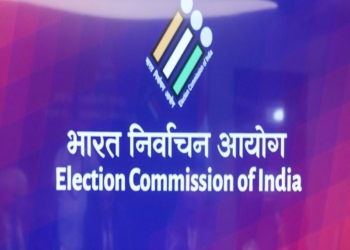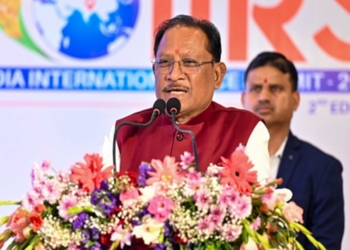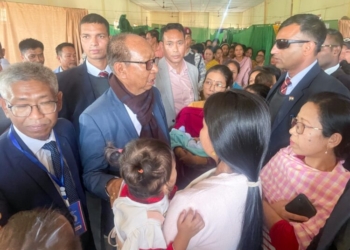New Delhi: For the metro living, school-going lot of the ’80s (sans 24×7 television, social media or even those battery-operated video games), waiting for the children’s magazine ‘Target’ was a monthly part of growing up.
No sooner would the mag arrive, the young lot would huddled over each other, and would crack up from the very early pages. This would be our monthly rendezvous with Ajit Ninan.
Right after the first page, the young readers would break into laughter with Ajit’s Funny World, a double spread of wordless visual gags that probably were our first lessons of reading pictures.
Making those visual connections and getting the joke over different situations, identifying with the characters and situations that were steeped in the local worlds around us, would be our first exposure to looking for humour in our daily lives. But there was more to come.
A page or two later would arrive a two-page comic that a generation or two would and still remembers fondly. A balding man with big round eyes and pointed moustache spiking out was Detective Moochwala who was everyone’s favourite.
With its judicious mix of local situations and characters, the comic was part-thriller, part-satire, and it became a permanent fixture on the last page of school notebooks, in our fan fiction strips.
Inspired by the original, our notebook Moochwala had to solve our immediate problems of school tests, agonising teachers and what not, but the way we wanted it. Thanks to Ninan’s simple, neat draughtsmanship, the lines were minimal, which made Moochwala easy to copy, draw and address our issues.
Remember those were the days when reading comics in school was a taboo, an under-the-desk activity, Moochwala moved with us swiftly as we were outgrowing our Hardy Boys, Nancy Drews or even Phantoms and Mandrakes.
Moochwala was our own. He came from our neighbourhood without the aesthetic burden of western comics that Fauladi Singh or Nagraj still live with. Close to it, Hindi readers had Pran’s Chacha Choudhury and his assistant Sabu, or Abid Surti’s Dabbooji, but English-speaking Moochwala was closer to a middle-aged local Tintin with his dog, solving issues of national importance through canny thinking and local ‘jugaad’. Probably he and his fellow cartoon characters were our first ambassadors of ‘vocal for local’ too.
Soon, as we moved to senior school, Ninan too moved on from the magazine to a daily, expected to churn out more serious, political stuff. Our journeys seemed identical one would say. And this is where it got even more interesting.
When political cartoonists had an important role to play in journalism, Ninan’s cartoons regularly arrived on the front page, sometimes as the lead story. Such was the power of the cartoonist’s desk, that a strong politically scathing, visually biting satire would be considered as a comment from the newspaper as a whole or even a visual editorial.
And this is where Ninan excelled. His cartoon edits or the pocket strip or even his political illustrations were what made it quintessentially an Ajit Ninan work, more than his strong drawing ability, his lines or expressions or the laughs; it was his visual comment.
In that sense he played by the book and did exactly what a political cartoon is expected to do (besides raising a chuckle) — to make a strong visual comment. Ninan’s visual idioms were never to be missed, however small or big or lead or thumbnail the piece might have been. Here too he pushed the reader to read his work and not just see.
As a follower, from a school kid to a practitioner, following the expanse of Ajit Ninan’s work was always exasperating. From gags to comic strips to daily pocket cartoons to cartoon editorials to plain, descriptive illustrations, he was a tireless master of it all, never compromising on his sense of humour.
“The range, the time, the energy, how does he do it?” One could say I would’ve aged with that question. But not until I met him. Decades back, when I was interviewing the man himself, the lines blurred between personal fandom and professional need of the hour.
I was to the point: “Tell me a day in your life, or how do you pack in so much within these hours.” He laughed and kept drawing, sticking to the requirements of the professional task at hand. Name a political figure and he would draw in seconds without a reference, and make the same facial expressions as he drew them for the character.
The answer to my query was simple, he just enjoyed and enjoyed every line he drew. And that’s what made him constantly create, laugh and make us laugh.
Ninan’s passing is both a rude shock and a gigantic loss in the shrinking world of Indian cartooning. I am convinced there was much more to come from his desk.
(IANS)




